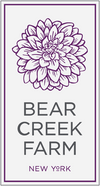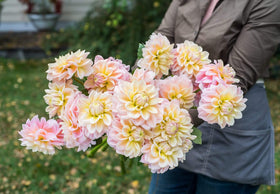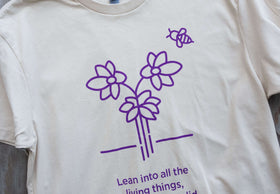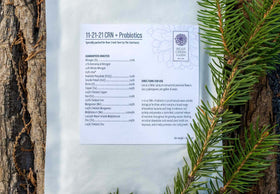I have a confession. Though our Bear Creek Farm enterprise is entering its fourth year, I didn’t start calling myself a farmer until now. My previous identity was hard won: big business, big offices, global clients. While I didn’t play a man’s game necessarily, I certainly was in a man’s world, and my identity was linked to professional achievement in the corporate world.
Starting out in New York City, the first questions people asked were, “what do you do for a living?” and “where do you live?” These finely crafted inquiries would determine how much money you made. I was very goal-driven. (I am glad millennials are changing this fixation, being less interested in categorizing people.)
Saying I was a farmer to people in my NYC community meant I wasn’t sufficiently ambitious, therefore, not in their world and no longer interesting. Naming myself a farmer to agriculture professionals was perhaps laughable as this high-heeled city girl struggled with countless errors to improve their ways by seeking a bridge between old and new.
I also surmised I could manage growing flowers from afar and continue my day-to-day work of consulting branded clients, but that was ridiculous and naïve. That thinking had more to do with fear of leaving my old identity than the reality of creating a prosperous and thriving farm. And hadn’t I given so many innovation/marketing presentations on the importance of focus to achieve success?
I was wrong on every count. What a silly thought that farming, the most difficult endeavor I have ever undertaken, would not require my full attention. Growing things wait for no one. My five-year plan would not be achievable unless I understood every facet of the business. (I’ll write about my five-year plan in another post. As much as my previous business endeavors, this plan needed to be ambitious and scalable.)
Maybe professional, experienced farmers secretly chuckled at my innocence and my thousands of questions but, frankly, I have never found a group of people more open and willing to tell me field stories or to explain how they do things. While they might have viewed my novel approaches as different, today many of them call me for advice about growing—an honor that is truly gratifying.

Now that the business is thriving and I am just one year delayed in my five-year plan, I proudly say I am a farmer to my city friends and new acquaintances alike. Their reaction is nothing like I expected. Faces light up, questions ensue. They want to know what I grow, was I always a farmer, how I came to be one, and they exude a genuine interest rather than the indifference that I anticipated.
Though I have started and successfully driven forward other businesses, it took farming and the beauty of flowers for me to realize that it is not the work or the organization that defines me but my resourcefulness. My abilities to meet new challenges, persevere and accept change make me who I am. Today I proudly say I am a farmer. And I am a more emotionally mature woman as well.




